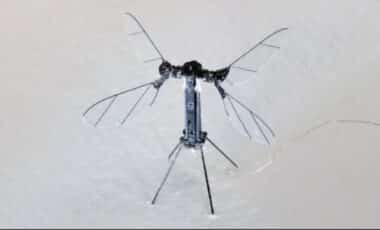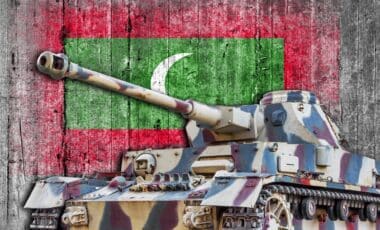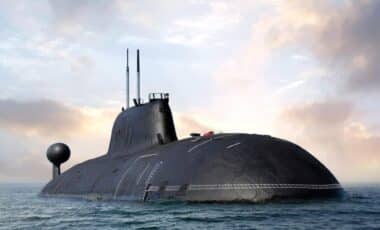Being there . . . . May 1940 – June 1941, when Great Britain stood alone as Hitler pivoted his powerful, power-diving Luftwaffe to “blitz” the United Kingdom’s armed forces and the spirit of its people . . .
RECKONING THE ROLES OF BRITANNIA’S ROYAL AIRFORCE IN WINNING WORLD WAR II
Part One
Reviewed and Highly Recommended by Don DeNeviLess than 15 days into the New Year, Casemate Publishers’ contribution to the literature of the Second World War is impressive: six crisp, cogent books certain to appeal to military buffs fascinated with those young, brave, “sky-high heroes” who raced to their Supermarine Spitfires and Hawker Hurricanes, then, within seconds, flew straight into the skies to control the Channel, and, if necessary, spar with hundreds of Dornier Do17s and Messerschmitt Me110s to the bitter end. The Fuhrer of Greater Germany would not cross, regardless of cost. And, because of that embarrassment, he would again pivot away from the military and take it out on the resolute British people.
The six titles, each chaste, clearly, and comprehensively written with a wealth of new and vivid information, are rich with photographs, captivating in narration. Present-day readers will relive the hopes, anxieties, dangers, victories, and defeats in those extremely dangerous days.
“THE ROLE of INTELLIGENCE in the BATTLE OF BRITAIN”, by Norman Ridley. Air World: Pen & Sword Books: 263 pages, hc; $49.95.
As expected, author Norman Ridley abides adheres to the credo of the world’s finest aviation publishers, Air World, an imprint of Pen Sword Books, “Strive for the highest standards, rank, or class, of literary excellence”. And, what a whopping mesmerizer his “The Role of Intelligence in the Battle of Britain” turned out to be. That great battle was notable for several reasons, not just thwarting “the monster from crossing the moat”. In fact, the role of intelligence on both sides was almost as critical. The fighting services on both sides had their own intelligence resources, but these were directed to work within the limited fields of their own interests and were given little incentives to share their sources or information. Eleven chapters, meticulously researched, provide as with insight and knowledge very, very writers dare tackle because of their complexities, i.e., Luftwaffe intelligence, Goring, German radar, RAF intelligence, Caswall and Dowding, British radar, the so-called “Dowding System”, testing it in destruction, Tizard and his committee, ENIGMA and the Polish codebreakers Ridley’s four appendices are absolute must-reads for the serious reader of WWII literature. “RAF SPECIAL DUTIES – Unique Sorties of the Second World War”, by Colin Pateman. Fonthill Media: 224 pages, hc; $34.95.
This splendid author delves into the personal annals of the RAF – the logbooks – and provided us a window into a lesser-known side of the service. Many Special Duties operations flew out of RAF Tempsford, Britain’s most secret airfield, and contributed behind the scenes in sorties of critical importance. Others, interestingly, were all about publicity, using scientific methods to create “spoof squadrons” on enemy radar, or filming bombing sorties for Allied propagandas. Colin Pateman presents these gripping stories from the perspectives of pilots and air crew – men whose skill and courage were tested beyond ordinary expectations. Paterman, a retired police officer whose specialty was handling search dogs, enjoys focusing his varied books on the heroic, unfaltering bravery, and dedication RAF “sky-high heroes”. Such a pleasurable, enjoyable, relaxed read is rare.“UNWANTED HERO – The Flying Career of Squadron Leader Donald Barnard, DFC, 1937 – 1955,” by Colin Pateman & Oliver Clutton-Brock. Fonthill Media: 224 pages, hc; $29.95.
In this superb escape memoir, surprisingly up close and detailed, Colin Pateman, author of the previous book introduced, “RAF SPECIAL DUTIES – Unique Sorties of the Second World War”, writes in his Preface to “Unwanted Hero,” “Having researched evaders and RAF personnel for many years, I was fortunate to acquire documentation and memorabilia that belonged to the late Squadron Leader Donald Barnard DFC. One of the items secured was a large format diary written in pencil by Donald of his escape from enemy occupied France, a story that is both personal and unique in content. It offers in intimate details the courageous efforts of the clandestine escape line that aided his escape. There can never be too many stories told that pay tribute to the selfless individuals who worked for these escape lines, especially that of the Fillerin family, who first looked after Donald. Norbet Fillerin, his wife, and three children placed themselves at risk, as thousands of others who paid the ultimate sacrifice. By the time that Donald had contacted them in September 1942, thirteen other soldiers and airmen had already been sheltered at their home.” In this incredible originalAccount, written while the German were searching for him within the neighborhood he was hiding, is an invaluable, insightful, evader story no WWII reader will want to miss. It truly belongs in the true enthusiast’s personal library.
Part Two of this series, “Casemate Publishers launch six ‘Reckoning the RAF When Britain Stood Alone’ titles”, three titles here, and three to follow tomorrow. Thank you, publishers, editors, writers, and publicist for such riveting reading. Tomorrow’s introductions are, “Instruments of Darkness – The History of Electronic Warfare 1939 – 1945”, “Dambuster-In-Chief – The Life of Air Chief Marshal Sir Ralph Cochrane’, and “Johnnie Johnson’s 1942 Diary – The War Diary of the Spitfire Ace of Aces”, all from Casemate, a nonpareil military publisher. 







